Search Results
Showing results 121 to 140 of 219
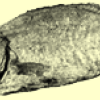
Make a "Mummy"
Source Institutions
The Ancient Egyptians used a naturally-occurring salt from the banks of the Nile River, called natron, to mummify their dead.

All Tangled Up
Source Institutions
In this activity on page 60, learners examine and simulate wildlife entanglement by experiencing what it might be like to be a marine animal trapped in debris.

What Color is Your Air Today?
Learners develop awareness and understanding of the daily air quality using the Air Quality Index (AQI) listed in the newspaper or online.
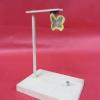
Floating Butterfly
Source Institutions
In this activity, learners create a cool floating animal using the science of magnetism. Learners discover what happens when a piece of magnetic metal enters a magnet's field.
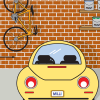
Avi's Sensational Salt Dough
Source Institutions
In this activity on page 5 of the PDF, learners mimic the process for making bricks. Learners shape and bake creations from a dough that is made from flour, salt, and water.
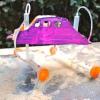
Hydraulic Car
Source Institutions
In this activity, learners build cars using syringes and water-powered hydraulics. Learners construct the car frame out of cardboard and set up a hydraulic system to raise and lower the car.
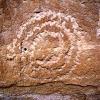
Make Your Own Petroglyph
Source Institutions
In ancient Chaco Canyon, the people used a "sun dagger" petroglyph to mark the passing of seasons.

Horton Senses Something Small
Source Institutions
In this story time program, young learners listen to the Dr.
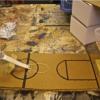
Finger Basketball
Source Institutions
In this activity, learners build mini-basketball courts using cardboard and measuring spoons. Use this activity to introduce learners to catapults, forces, and levers.
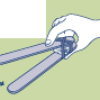
Eat Like a Bird
Source Institutions
Birds' beaks are designed to allow birds to get the most of whatever food they need. In this activity, learners get an idea of how different beak shapes suit different food sources.

Drinking Straw Oboe
Source Institutions
In this quick activity (page 1 of the PDF under SciGirls Activity: Music and Sound), learners will construct an oboe-like instrument from a plastic drinking straw by cutting the end to split it into t
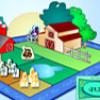
Bet the Farm
Source Institutions
This is an online game about the complexities of farming. Learners will "draw" cards and make decisions about how to take care of their farm.

Kaleidoscope
Source Institutions
In this activity, learners build inexpensive kaleidoscopes using transparency paper and foil (instead of mirrors).
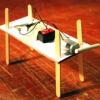
Minibot
Source Institutions
In this activity, learners build a mini dancing robot. This engineering activity introduces learners to electricity, circuits, switches, conductivity, and motors.
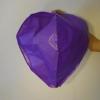
Hot Air Balloon
Source Institutions
In this activity, learners build a hot air balloon using just a few sheets of tissue paper and a hair dryer.
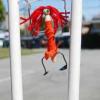
Gymnast
Source Institutions
In this physics activity, learners build a toy with a figure that spins around like a gymnast on the high bar.

Secret Goldenrod Messages
Source Institutions
In this activity, learners write invisible messages on goldenrod paper, and make the message appear and disappear using acids and bases.

Glitter Slime
Source Institutions
In this activity on page 8 of the PDF, learners make a slimy substance very similar to mucus, and sprinkle it with glitter to imitate the way that allergens are trapped.

Mapping the Spread of HIV/AIDS: Trailing the Pandemic
Source Institutions
In this activity, learners act as epidemiologists by mapping the prevalence of HIV/AIDS worldwide.
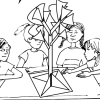
Build a Tree
Source Institutions
This activity (on pages 13-18) has learners build a model tree and then figure out how to make their tree stand up by itself.
